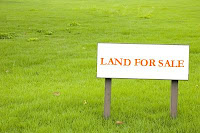 Last Friday's property cooling measures will have serious implications on how much developers will be prepared to pay for residential land, as well as the continued survival of popular lifestyle concepts like private roof terraces with swimming pools or jacuzzis.
Last Friday's property cooling measures will have serious implications on how much developers will be prepared to pay for residential land, as well as the continued survival of popular lifestyle concepts like private roof terraces with swimming pools or jacuzzis.First, the various measures to curb investment demand for residential properties - such as higher additional buyer's stamp duty (ABSD) rates, lower loan-to-value (LTV) limits and bigger cash downpayment - will reduce the pool of buyers for developers to sell units in their housing projects to.
Also giving developers reason to trim their land bids is the move to exclude private enclosed spaces (PES) and private roof terraces (PRT) in condo developments from the computation of gross floor area (GFA). Industry players say these features make up roughly 4-8 per cent of strata saleable area in high-rise condo developments and an even higher proportion for low-rise projects.
Under the rule change announced last Friday, PRT and PES now have to be carved out from the 10 per cent bonus gross floor area (GFA) allocation that also includes balconies. Development charges are payable for this bonus GFA. Given a choice between developing balconies and PES/PRT within the 10 per cent bonus GFA allocation, financially it makes more sense to opt for balconies.
Roxy-Pacific Holdings executive chairman Teo Hong Lim explained: "Most buyers and developers will be more receptive to balcony space than private roof terraces and private enclosed spaces. From my experience, you can sell PES and PRT at maybe 35-40 per cent of price charged for internal or built-in space, whereas you can price balcony space at the same rate as internal space."
"So private pools and jacuzzis on penthouse rooftops could become a thing of the past," he reckoned.
Another factor that is expected to dampen developers' appetite for big residential sites is the increase in the ABSD rate payable on residential land purchases - from 10 per cent to 15 per cent.
To qualify for upfront remission of ABSD, developers have to undertake to finish developing the project on the site and selling all the residential units in it within five years of the date of contract or agreement to buy the site, among other conditions. If they fail to do so, ABSD with interest (at 5 per cent per annum, compounded) becomes payable immediately upon expiry of the five-year deadline.
Source: Business Times –17 January 2013
No comments:
Post a Comment
No Spam, No Abusive Languages. Thank you for your cooperation!